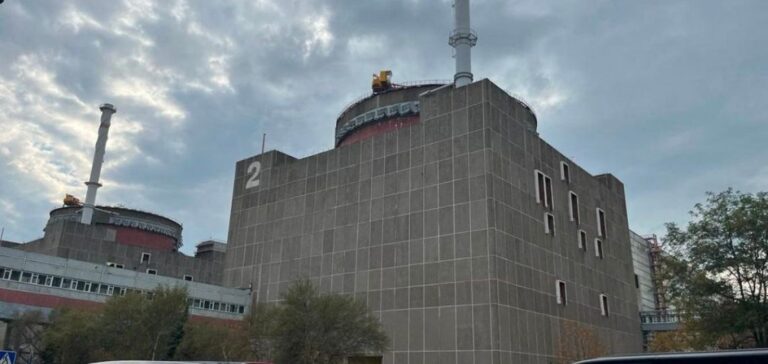The International Atomic Energy Agency (IAEA), in consultations with Kiev and Moscow to establish a safety zone around Ukraine’s Zaporizhia nuclear power plant, reported positive signals Monday.
“I have seen signs that they are interested in such an agreement,” said Director General Rafael Grossi at a press conference in Vienna on the first day of the UN body’s Board of Governors.
“We are discussing the different technical characteristics”, such as the perimeter of this zone or the work of the two IAEA experts present on site. “And what I’m seeing is that both sides are cooperating with us and asking questions, lots of questions,” Grossi continued.
In a report published last week shortly after a mission to the site, the IAEA had recommended the establishment of a protection zone for the site.
Located in southern Ukraine and occupied since March 4 by Russian forces, this power plant, the largest in Europe, has been bombed several times in recent weeks, with Moscow and Kiev accusing each other of these strikes. This situation has raised the spectre of a major nuclear disaster similar to that of Chernobyl in 1986.
While Kiev advocates a demilitarized zone, Grossi called for “keeping things simple.
“It is necessary that Ukraine and Russia agree on the very simple principle of not attacking or bombing the plant (….), there must be a commitment that no military action will target the plant and its surroundings,” he explained.
“I cannot enter into considerations of a broad demilitarization process or troop movements, which are not part of my mandate,” he stressed.
The Board of Governors of the IAEA, the UN’s nuclear watchdog, is meeting this week in Vienna, with the possible vote on a resolution condemning Moscow.
According to several diplomatic sources, the various member states have planned to examine in the middle of the week a text “calling on Russia to immediately cease all its actions” against the Zaporizhia power plant “so that the competent authorities”, namely Kiev, “regain full control”.
On Sunday, Ukraine announced the shutdown of the sixth and last operating reactor at the Zaporizhia plant. The operator Energoatom took advantage of the restoration of an emergency power line, which now provides power for fuel cooling and other essential safety functions.
But the situation “remains precarious,” Grossi warned, “after weeks of bombing that has damaged vital electrical infrastructure in the area.





















